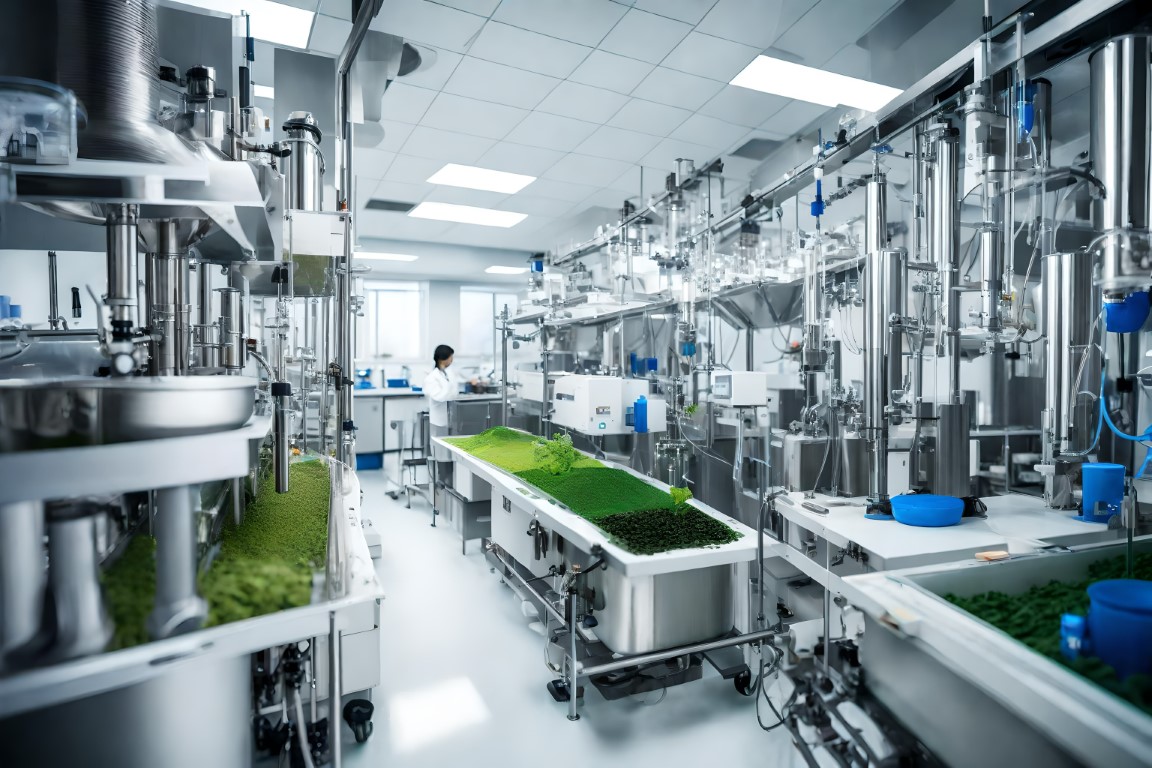Are we playing with fire when we tamper with the very building blocks of life?
Bioengineering advancements hold great promise, but have you considered the potential ethical dilemmas that come with them?
From the lack of long-term data on genetically modified organisms to the creation of designer babies, the implications are vast and complex.
Stay tuned to explore the intricate web of ethical concerns surrounding bioengineering advancements and their impact on society.
Key Takeaways
- Lack of long-term data hinders conclusive evidence, raising ethical dilemmas.
- Genetic discrimination and privacy concerns threaten societal harmony and individual rights.
- Loss of genetic diversity and genetic monoculture risks impact ecosystem health and adaptability.
- Ethical considerations in bioengineering are vital for sustainability and societal well-being.
Lack of Long-Term Data
You seldom find conclusive evidence in bioengineering due to the lack of long-term data, raising serious ethical concerns. The long-term effects of bioengineered products remain largely unknown, leading to uncertainty about their safety and efficiency. Without extensive data validity over extended periods, it becomes challenging to assess the true impact of these advancements on human health and the environment.
The absence of comprehensive long-term studies raises red flags regarding the potential risks associated with bioengineering. How can we guarantee the safety of genetically modified organisms or artificially engineered medical treatments without concrete evidence of their effects over time? The urgency to fill this gap in knowledge is crucial to make informed decisions about the ethical implications of bioengineering practices.
Moreover, the limited data validity in bioengineering research undermines the credibility of scientific findings in this field. Without robust evidence supporting the safety and efficacy of bioengineered products, how can we justify their widespread use and integration into various industries? Addressing these gaps in long-term data must be a priority to ensure that bioengineering advancements align with ethical standards and prioritize human well-being.
Potential for Genetic Discrimination
The potential for genetic discrimination looms ominously as bioengineering advancements continue to reshape the landscape of healthcare and personal genetics. This new era brings about significant challenges that must be addressed to prevent discrimination based on one's genetic makeup.
Privacy Concerns: With the increasing accessibility of genetic information, there's a growing risk of unauthorized access and misuse of sensitive data, raising concerns about individuals' privacy rights.
Social Implications: Genetic discrimination could lead to societal divisions based on genetic predispositions, potentially exacerbating existing inequalities and prejudices.
Employment Bias: Employers may discriminate against individuals based on genetic traits that are perceived as undesirable or indicative of health risks.
Healthcare Disparities: Genetic discrimination could result in unequal access to healthcare services or insurance coverage based on an individual's genetic profile, creating disparities in health outcomes.
As bioengineering progresses, it's crucial to establish robust regulations to safeguard against genetic discrimination and uphold ethical standards in the realm of genetics.
Loss of Genetic Diversity
You must confront the stark reality of genetic monoculture risks that loom ominously ahead.
The erosion of biodiversity poses a grave threat to the delicate balance of our ecosystem.
It's imperative to address these concerns before irreparable damage is done.
Genetic Monoculture Risks
Rarely do we consider the potential dangers of genetic monoculture, yet the loss of genetic diversity poses significant risks in bioengineering advancements.
Genetic monoculture risks include:
- Increased Vulnerability: Reduction in genetic diversity makes organisms more susceptible to diseases and environmental changes.
- Stagnation in Research: Limited genetic variation hinders the development of new bioengineering solutions and innovations.
- Economic Implications: Dependence on a few genetically uniform species can lead to economic losses if they're affected by a specific threat.
- Ethical Concerns: Loss of diverse gene pools raises ethical questions about the impact on ecosystems and future generations.
Genetic monoculture not only limits the adaptability of species but also raises ethical and practical concerns that must be carefully considered in bioengineering endeavors.
Erosion of Biodiversity
In overlooking the erosion of biodiversity, we dismiss the crucial role that genetic diversity plays in the sustainability and resilience of ecosystems. The trend towards genetic modification and the emphasis on certain high-yielding varieties have led to a narrowing of genetic diversity in our crops and livestock, putting us at risk of ecosystem disruption and species extinction.
A loss in genetic diversity weakens the ability of ecosystems to adapt to environmental changes and threats, ultimately jeopardizing ecosystem health. By prioritizing uniformity over diversity, we're playing a dangerous game with nature's intricate balance.
It's imperative to recognize the value of genetic diversity in maintaining healthy ecosystems and take action to preserve and restore it before irreversible consequences unfold.
Creation of Designer Babies
The controversial practice of creating designer babies raises profound ethical questions regarding the boundaries of genetic manipulation. As you delve into this topic, consider the following insights:
- Erosion of Genetic Diversity: By selecting specific traits for their children, individuals may inadvertently contribute to a homogenization of the gene pool, potentially reducing the overall genetic diversity of the population.
- Social Inequality: The ability to create designer babies could exacerbate existing societal disparities, as only those with financial means would have access to this technology, widening the gap between the affluent and the less privileged.
- Ethical Quandaries: Manipulating the genetic makeup of offspring raises complex ethical dilemmas, such as questions about consent, autonomy, and the commodification of human life.
- Unforeseen Consequences: The long-term effects of altering the genetic code of future generations are largely unknown, leading to concerns about unintended outcomes and irreversible changes to the human genome.
As you consider the implications of creating designer babies, reflect on the ethical ramifications and societal impact of such advancements.
Ethical Considerations in Animal Testing
Genetic advancements raise critical questions about the ethical implications of utilizing animals for testing purposes, challenging the balance between scientific progress and animal welfare. While animal testing has contributed to numerous medical breakthroughs, the ethical concerns surrounding it can't be ignored. The crux of the matter lies in ensuring that the benefits derived from testing on animals outweigh the harm caused to them. It forces us to confront the ethical dilemma of sacrificing animal welfare for the sake of scientific validity.
The concept of animal welfare encompasses not just physical health but also psychological well-being. As we delve deeper into bioengineering advancements, it becomes imperative to reassess our ethical standards regarding the treatment of animals in research. Are we justified in subjecting sentient beings to potentially harmful experiments in the name of progress? Striking a balance between scientific validity and ethical considerations is paramount. It challenges us to explore alternative testing methods that are both effective and humane, pushing the boundaries of innovation while upholding moral principles. The ethical implications of animal testing demand a critical reevaluation of our priorities in the realm of bioengineering.
Implications for Environmental Sustainability
Considering the urgent global need for sustainable practices, bioengineering advancements must address their implications for environmental sustainability. As we delve into the intersection of bioengineering and the environment, it becomes evident that these advancements have far-reaching consequences that demand our attention. Here are some key points to ponder:
- Resource Management: Bioengineering can lead to the depletion of natural resources if not managed effectively.
- Ecological Impact: The alterations made through bioengineering processes can have unforeseen consequences on ecosystems.
- Biodiversity: Introducing genetically modified organisms may disrupt the delicate balance of biodiversity in our environment.
- Long-Term Sustainability: It's crucial to consider the long-term effects of bioengineering projects on the environment to ensure sustainability for future generations.
Frequently Asked Questions
What Are the Potential Economic Impacts of Bioengineering Advancements?
In bioengineering advancements, economic implications are vast. Job opportunities expand with new technology. As biotech thrives, industries evolve. Stay informed, seize chances. Embrace innovation for growth and progress in the ever-changing economy.
How Do Bioengineering Advancements Affect Global Healthcare Systems?
When bioengineering advances, global access to healthcare improves, but disparities persist. Innovations can revolutionize treatment and diagnostics, yet ethical considerations must guide progress to ensure fair and equitable benefits for all.
Are There Any Regulations in Place to Monitor and Control Bioengineering Research?
You need to understand that ethical guidelines and research oversight play a crucial role in bioengineering advancements. Regulations are in place to monitor and control research, ensuring safety and ethical practices are upheld.
What Are the Potential Societal Implications of Bioengineering Advancements?
When bioengineering advances, ethical dilemmas arise, sparking societal concerns. As you navigate these uncharted territories, ponder the implications on our future. Stay vigilant, for the choices we make today shape tomorrow's world.
How Does Public Opinion on Bioengineering Advancements Vary Across Different Regions or Demographics?
In different regions and among various demographics, public opinions on bioengineering advancements vary significantly. Cultural differences and generational divides play crucial roles in shaping these perspectives. Understanding these nuances is essential for a comprehensive analysis.
Conclusion
As bioengineering advancements continue to push boundaries, ethical concerns loom large. The lack of long-term data, potential for genetic discrimination, loss of genetic diversity, creation of designer babies, ethical considerations in animal testing, and implications for environmental sustainability all raise red flags.
It's crucial to proceed with caution and thoughtful consideration, ensuring that these advancements benefit society as a whole without sacrificing our moral compass.

